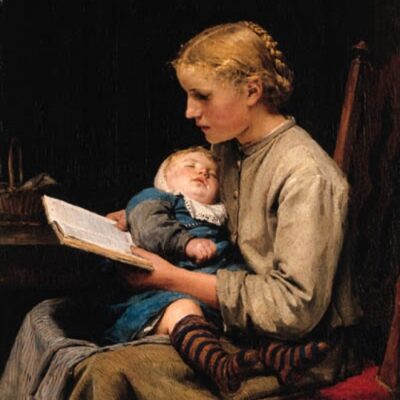A Woman Is No Man by Etaf Rum
Etaf Rum’s powerful debut novel, A Woman Is No Man reveals the lives of three generations of Palestinian-American women told in primarily two time periods (1990 and present day). Through these three protagonists, Fareeda Ra’Ad, her granddaughter Deya, and her daughter-in-law Isra, the author provides an intimate glimpse into a controlling and closed cultural world, and a universal tale about family and the ways silence and shame can destroy those we have sworn to protect.
Born and raised in Brooklyn, the daughter of Palestinian immigrants, Etaf Rum has spoken about the risks of exposing her community to the scrutiny of narrative. “It’s a devil’s bargain: Speak and add inadvertent fuel to the ever-smoldering fire of anti-Arabism — or don’t speak and add another layer of silence.” The author has stated that “I knew that as long as I stayed away from controversial topics like arranged marriages and domestic abuse, no one would criticize me or call me a traitor. No one would shun me. No one would try to hurt me,” Rum has explained. “Perhaps these fears are why there aren’t many Arab-American women on bookshelves; why, whenever I search for our stories in bookstores and libraries, I cannot find them.”
The author continues to state that one of her struggles was “confirming stereotypes about Arab people and the Arab community, stereotypes that include oppression, domestic abuse, terrorism. And so that kind of hindered my ability to express myself freely, without fear, in the beginning when I was writing the novel. And it took me a long time to overcome those fears and realize that in order for me to speak on behalf of women who are abused and oppressed, and to tell their stories—especially those women who are afraid to tell their own stories, because they’re ashamed, and because they feel like someone will come and retaliate, that I had to overcome that fear and tell this very authentic story.”
Isra, one of the compelling fictional characters the author develops, was born in Palestine, but comes to Brooklyn when her family arranges a marriage to Adam, who runs a deli across the river in Manhattan. At the age of seventeen, Isra shares her fears of an arranged marriage with her mother.
Isra cleared her throat. “But Mama, what about love?”
Mama glared at her through the steam “What about it?”
“I’ve always wanted to fall in love.”
“Fall in love? What are you saying? Did I raise a sharmouta?” [slut]
“No…no…” Isra hesitated. “But what if the suitor and I don’t love each other?”
“Love each other? What does love have to do with marriage? You think your father and I love each other?”
Isra’s eyes shifted to the ground. “I thought you must, a little.”
Mama sighed. “Soon you’ll learn that there’s no room for love in a woman’s life. There’s only one thing you’ll need, and that’s patience.” [Kindle Version, p. 29]
But as those experiencing physical, sexual, and/or psychological mistreatment know all too well, patience can function as an agent that allows abuse to continue. And so it does in this extraordinary story.
















